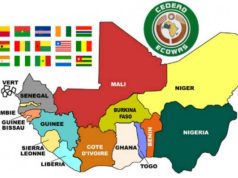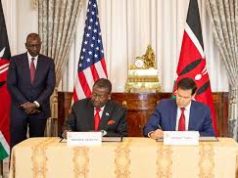Confidence in Nigeria’s business environment continues to grow, with the latest Purchasing Managers’ Index (PMI) from Stanbic IBTC Bank Nigeria indicating a second consecutive month of increased private sector output. The headline PMI for January 2025 stood at 52.0, slightly down from December’s 52.7 but still above the 50.0 threshold, signaling sustained improvement in business conditions. This growth is driven by rising new orders, increased business activity, and heightened optimism among firms, despite ongoing inflationary pressures.
The Stanbic IBTC Bank Nigeria PMI, compiled by S&P Global, reflects the health of the private sector through responses from purchasing managers across approximately 400 companies. Covering key sectors such as agriculture, mining, manufacturing, construction, wholesale, retail, and services, the PMI provides a comprehensive snapshot of Nigeria’s economic landscape. January’s reading of 52.0 marks the second straight month of growth, underscoring a gradual recovery in business confidence and activities.
Sustained Growth in New Orders and Business Activity
The report highlights a solid rise in business activity and new orders, driven by improving customer demand and a greater willingness among clients to commit to new projects. While the pace of expansion eased slightly compared to December, three out of four monitored sectors—agriculture, manufacturing, and services—recorded growth. The wholesale and retail sector was the only exception, reflecting ongoing challenges in consumer spending.
Muyiwa Oni, Head of Equity Research West Africa at Stanbic IBTC Bank, noted, “Nigeria’s private sector activity sustained its improvement in January 2025, albeit at a slightly slower pace than in December. The increase in output and new orders reflects improving customer demand and a more favorable business environment.”
Rising Business Confidence and Employment
Business sentiment reached its highest level since the survey began over 11 years ago, with firms expressing optimism about future growth. This positive outlook has translated into increased hiring, marking the second consecutive month of employment growth. Companies are also expanding their purchasing activities and inventories in anticipation of stronger demand.
“The uplift in sentiment at the start of the year was the largest since the survey began,” the report stated. “Firms are optimistic about expansion plans and marketing activities, which are expected to support output growth over the coming year.”
Inflationary Pressures Show Signs of Easing
While inflationary pressures remain a concern, the PMI report indicates a moderation in both input costs and output prices. January saw the slowest rise in input costs since April 2024 and the weakest increase in output prices in six months. This trend suggests that inflationary pressures may be softening, providing some relief to businesses and consumers alike.
Oni projected a gradual moderation in inflation throughout 2025, with headline inflation expected to average 30.5% year-on-year and end the year at 27.1%. He attributed the high inflation in 2024 to factors such as significant foreign exchange depreciation, petrol price increases, and extreme weather conditions affecting food supplies.
Sectoral Growth Prospects for 2025
Looking ahead, the non-oil sector is expected to grow by 3.2% in 2025, up from an estimated 3.0% in 2024. Key drivers of this growth include manufacturing, trade, ICT, and finance & insurance. However, the agriculture sector is likely to continue lagging behind its long-term average due to internal security challenges, high input costs, and adverse weather conditions.
Within the manufacturing sector, sub-sectors such as cement, food, chemicals, and pharmaceuticals have consistently outperformed, contributing significantly to overall economic performance. Oni emphasized, “These sub-sectors have been exceeding the manufacturing sector’s growth since Q4 2022 and will remain critical to Nigeria’s economic recovery.”
The latest PMI report paints a promising picture of Nigeria’s private sector, with sustained growth in business activity, new orders, and employment. While inflationary pressures persist, signs of moderation offer hope for a more stable economic environment in 2025. With rising business confidence and targeted growth across key sectors, Nigeria’s private sector is poised to play a pivotal role in driving the country’s economic recovery and long-term prosperity.
Follow us on Instagram.
https://www.instagram.com/businessnewsng?igsh=ZXpweTdjOGF1ZXdu

























